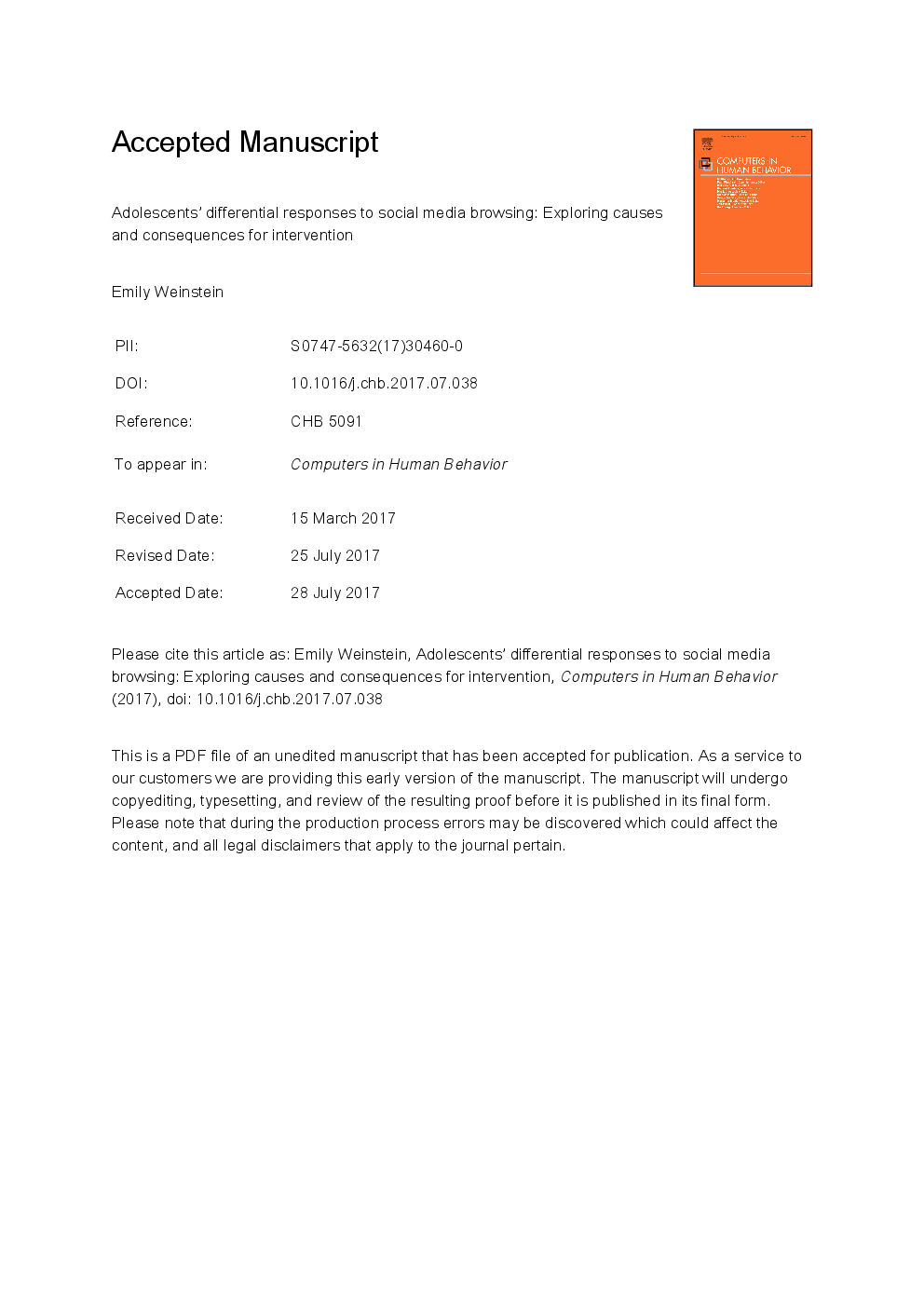ترجمه فارسی عنوان مقاله
پاسخ های دیفرانسیل نوجوانان به مرور رسانه های اجتماعی: بررسی علل و پیامدهای مداخله
عنوان انگلیسی
Adolescents' differential responses to social media browsing: Exploring causes and consequences for intervention
| کد مقاله | سال انتشار | تعداد صفحات مقاله انگلیسی |
|---|---|---|
| 131541 | 2017 | 41 صفحه PDF |
منبع

Publisher : Elsevier - Science Direct (الزویر - ساینس دایرکت)
Journal : Computers in Human Behavior, Volume 76, November 2017, Pages 396-405
ترجمه کلمات کلیدی
نوجوانان، احساسات، نمایش مشخصات عمومی استفاده کنید مرور وب اجتماعی، مقایسه اجتماعی، تندرستی،
کلمات کلیدی انگلیسی
Adolescents; Emotions; Instagram use; Social browsing; Social comparison; Well-being;

